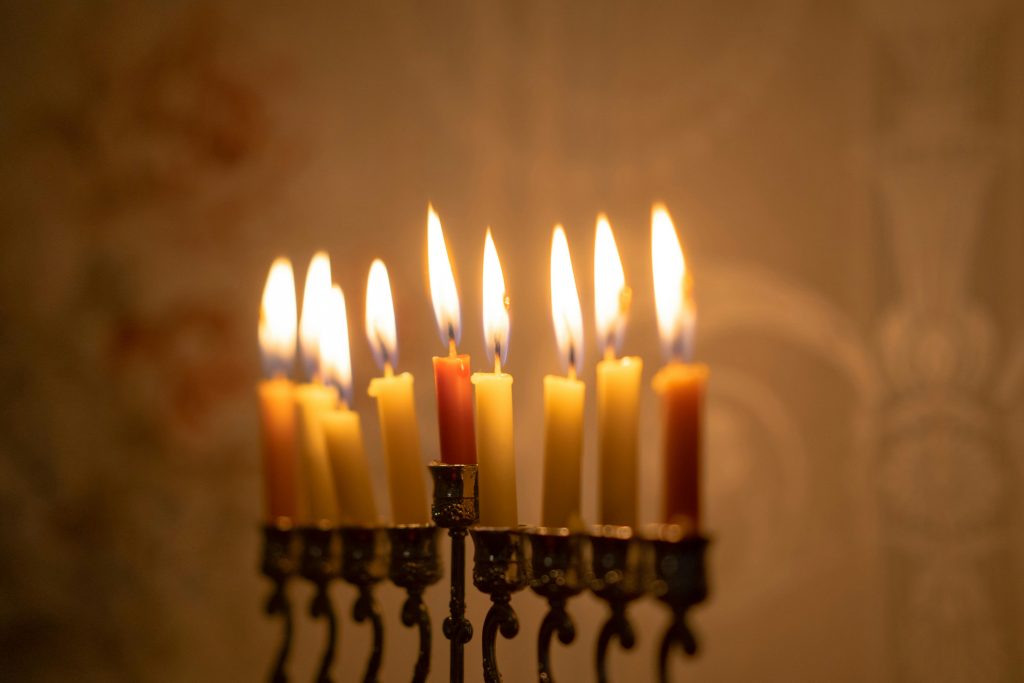Hanukkah is widely known as the Festival of Lights, or Chag Ha-Urim (חג האורים) in Hebrew. While the term evokes images of menorah candles glowing in the darkness, the origins of this name go back over 2,000 years to the writings of the Jewish historian Josephus Flavius.
Josephus’ Account of Hanukkah
Josephus lived in Jerusalem during the first century of the Common Era, and his work Antiquities of the Jews provides an early account of the holiday we now call Hanukkah:
And so Judah and his fellow citizens celebrated the festival of the restoration of the sacrifices of the Temple for eight days, and omitted no sort of pleasure, but everyone feasted upon very rich and splendid sacrifices; and they honored God, and delighted themselves with psalms of praise and the playing of harps. Indeed, they were so very glad at the revival of their customs and, after so long a time, having unexpectedly regained their right to worship, that they made it a law for their posterity that they should keep a festival celebrating the restoration of their Temple worship for eight days. And from that time to this we celebrate this, which we call the Festival of Lights, because, I imagine, beyond our hopes this right was brought to light, and so this name was placed on the festival.
Interestingly, Josephus makes no mention of the miracle of the oil lasting eight days — the story most commonly associated with Hanukkah today. Instead, he speculates that the name Festival of Lights refers to the restoration of the ability to worship and sacrifice in the Temple, a right that had been “brought to light” after years of suppression.
The Lights of the Menorah
While Josephus’ explanation highlights the symbolic “light” of restored worship, modern celebrations focus on the physical lights of the menorah. The menorah, with its eight branches (plus the shamash), is now the most prominent and beloved symbol of Hanukkah.
The lighting of the menorah recalls the miracle of the oil, a tradition that emerged centuries after Josephus’ account. According to this story, a small jar of oil, enough to last only one day, miraculously burned for eight days, allowing the rededication of the Temple. This miracle became central to the holiday’s meaning and is the reason we light candles each night of Hanukkah.
A Celebration of Light in the Darkness
Hanukkah typically falls during the darkest part of the year, making the glow of the menorah a powerful symbol of hope and resilience. For many, the name Festival of Lights now represents both the physical lights of the menorah and the spiritual light of Jewish survival and renewal.
A Legacy of Courage and Faith
Whether we think of the term Festival of Lights in Josephus’ sense — celebrating the restoration of Temple worship — or in the more familiar sense of the menorah’s glow, the message of Hanukkah remains the same: it is a celebration of courage, resilience, and the miracles that continue to light our way.

